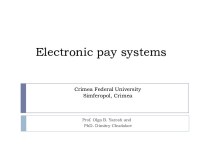- Главная
- Разное
- Бизнес и предпринимательство
- Образование
- Развлечения
- Государство
- Спорт
- Графика
- Культурология
- Еда и кулинария
- Лингвистика
- Религиоведение
- Черчение
- Физкультура
- ИЗО
- Психология
- Социология
- Английский язык
- Астрономия
- Алгебра
- Биология
- География
- Геометрия
- Детские презентации
- Информатика
- История
- Литература
- Маркетинг
- Математика
- Медицина
- Менеджмент
- Музыка
- МХК
- Немецкий язык
- ОБЖ
- Обществознание
- Окружающий мир
- Педагогика
- Русский язык
- Технология
- Физика
- Философия
- Химия
- Шаблоны, картинки для презентаций
- Экология
- Экономика
- Юриспруденция
Что такое findslide.org?
FindSlide.org - это сайт презентаций, докладов, шаблонов в формате PowerPoint.
Обратная связь
Email: Нажмите что бы посмотреть
Презентация на тему Topic name- SSD DISKS
Содержание
- 2. We have chosen this topic, because hard
- 3. Today more and more scientists are interested
- 4. HistoryWhat is SSD diskAdvantagesDisadvantagesSSD vs. HDD: What's the Difference?What is a SSD Disc ?
- 5. HistorySSDs had origins in the 1950s with
- 6. FIRST IPOD WITH SSD
- 7. First you need
- 8. Деревня дураковПоместите здесь ваш текстAnd now on the stage to come our SSD disc
- 9. What is the SSD disk?Short for Solid-State Drive or Solid-State
- 12. Here we see the difference in the
- 13. Durability: An SSD has no moving parts, so
- 14. Absence of noise due to lack of moving partsLow power consumption
- 16. Cons - the technology has not yet
- 17. Small capacity The market sells HDDs with
- 19. Скачать презентацию
- 20. Похожие презентации
We have chosen this topic, because hard & SSD DISKS are used everywhere in all computers and noutbooks ..
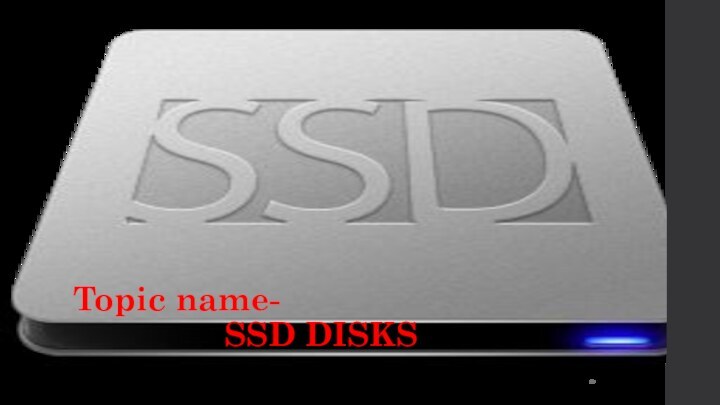

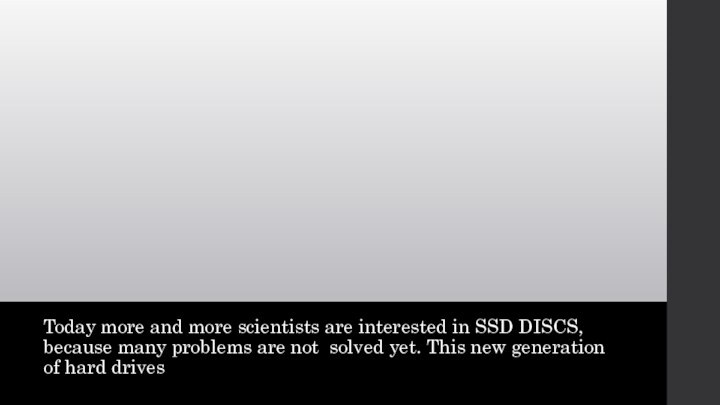
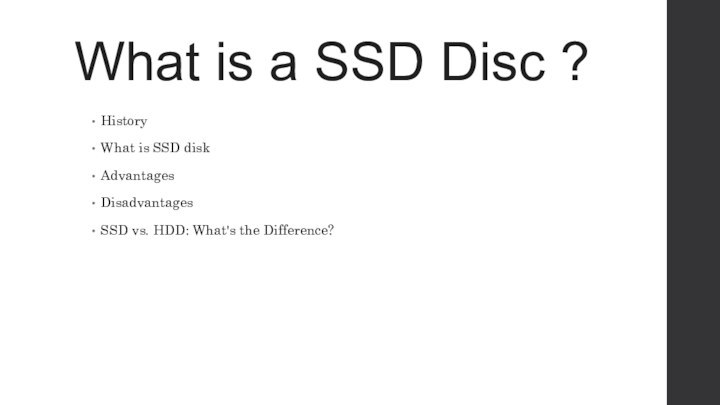
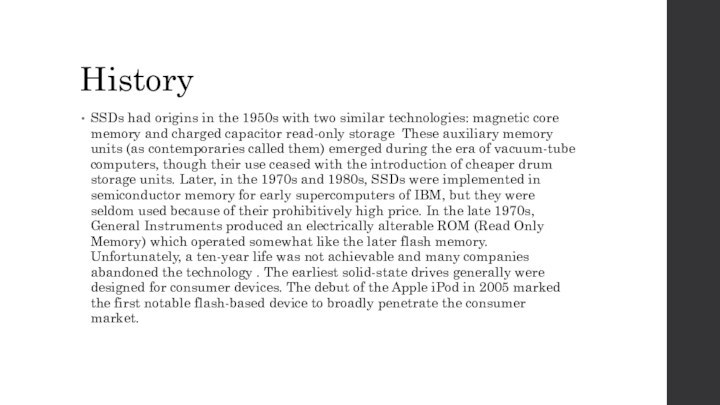
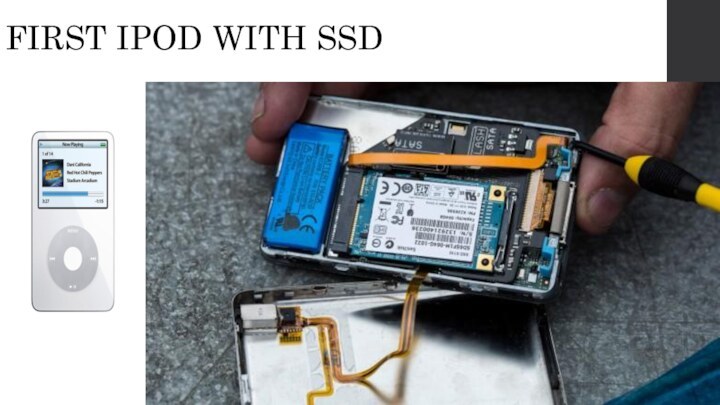
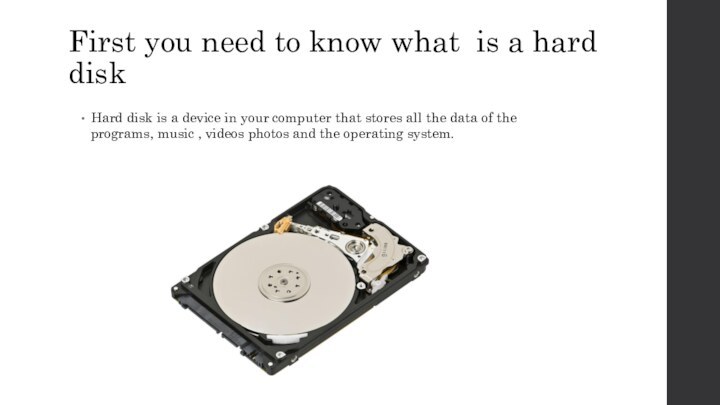
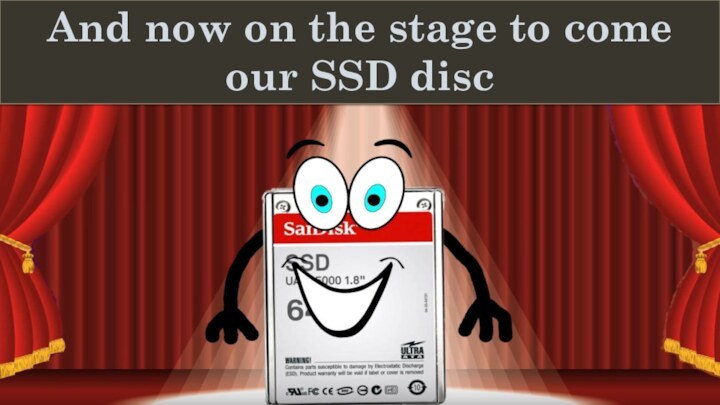
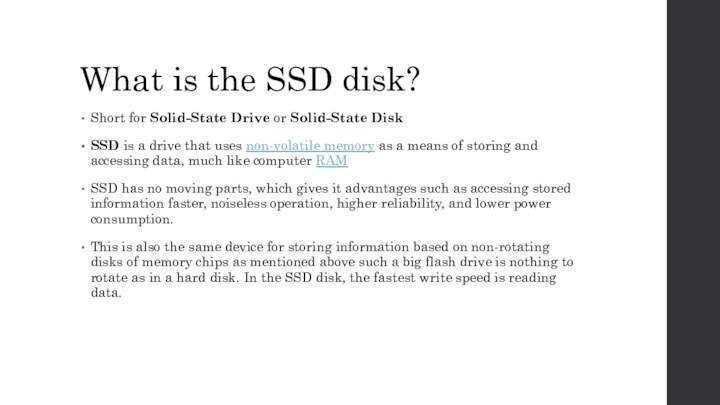
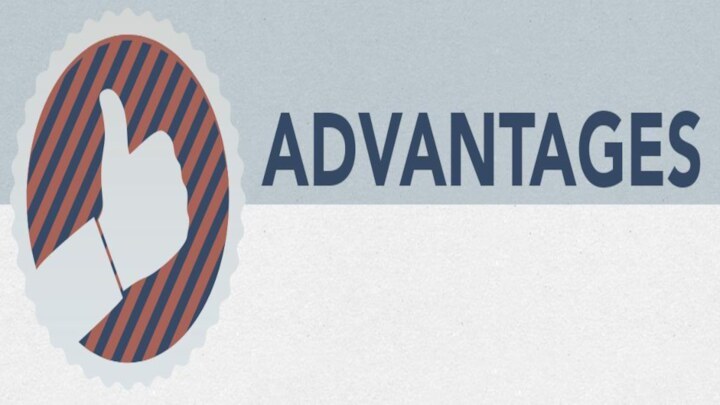
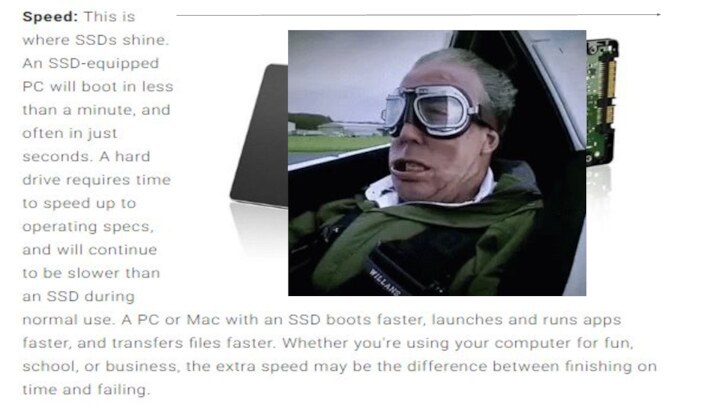
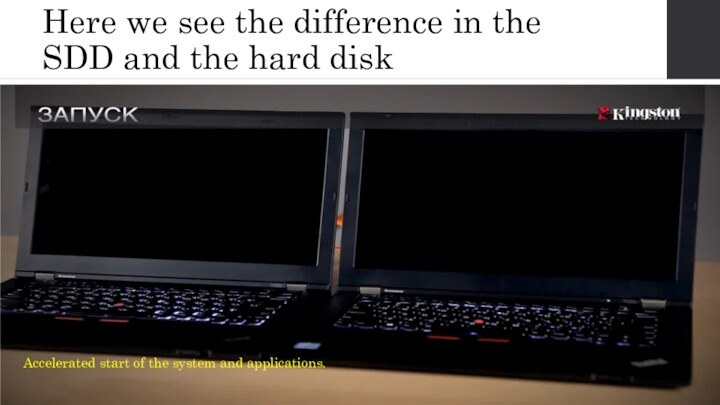
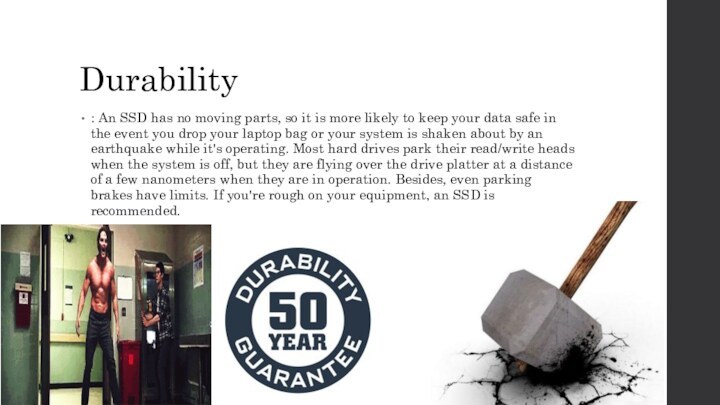
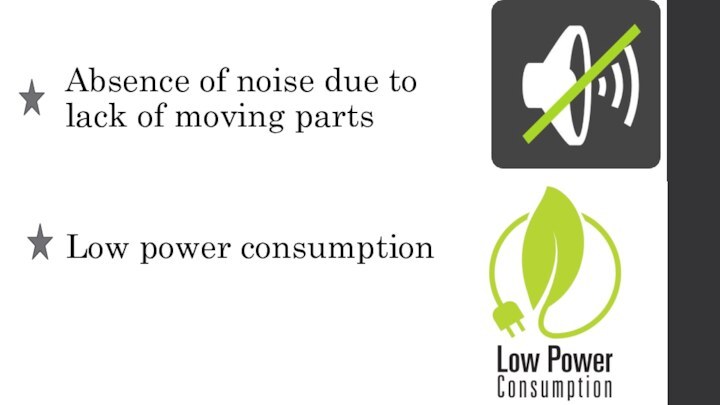

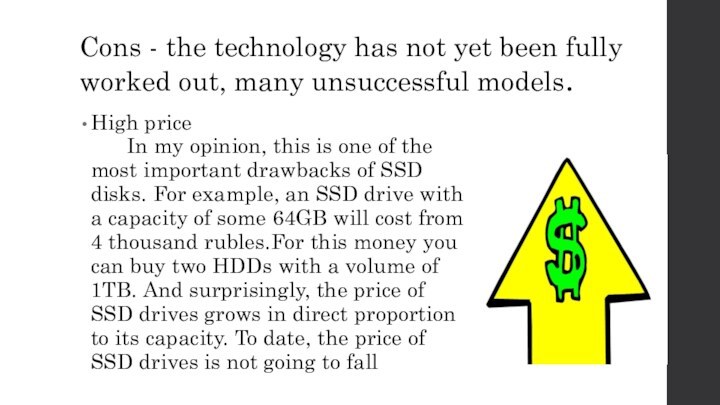
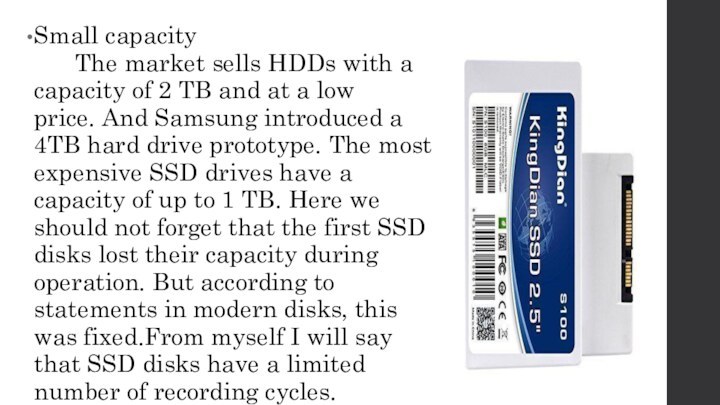


Слайд 3 Today more and more scientists are interested in
SSD DISCS, because many problems are not solved yet.
This new generation of hard drives
Слайд 4
History
What is SSD disk
Advantages
Disadvantages
SSD vs. HDD: What's the
Difference?
What is a SSD Disc ?
Слайд 5
History
SSDs had origins in the 1950s with two
similar technologies: magnetic core memory and charged capacitor read-only
storage These auxiliary memory units (as contemporaries called them) emerged during the era of vacuum-tube computers, though their use ceased with the introduction of cheaper drum storage units. Later, in the 1970s and 1980s, SSDs were implemented in semiconductor memory for early supercomputers of IBM, but they were seldom used because of their prohibitively high price. In the late 1970s, General Instruments produced an electrically alterable ROM (Read Only Memory) which operated somewhat like the later flash memory. Unfortunately, a ten-year life was not achievable and many companies abandoned the technology . The earliest solid-state drives generally were designed for consumer devices. The debut of the Apple iPod in 2005 marked the first notable flash-based device to broadly penetrate the consumer market.Слайд 7 First you need to know what is a
hard disk
Hard disk is a device in your computer
that stores all the data of the programs, music , videos photos and the operating system.
Слайд 9
What is the SSD disk?
Short for Solid-State Drive or Solid-State Disk
SSD is
a drive that uses non-volatile memory as a means of storing
and accessing data, much like computer RAMSSD has no moving parts, which gives it advantages such as accessing stored information faster, noiseless operation, higher reliability, and lower power consumption.
This is also the same device for storing information based on non-rotating disks of memory chips as mentioned above such a big flash drive is nothing to rotate as in a hard disk. In the SSD disk, the fastest write speed is reading data.

